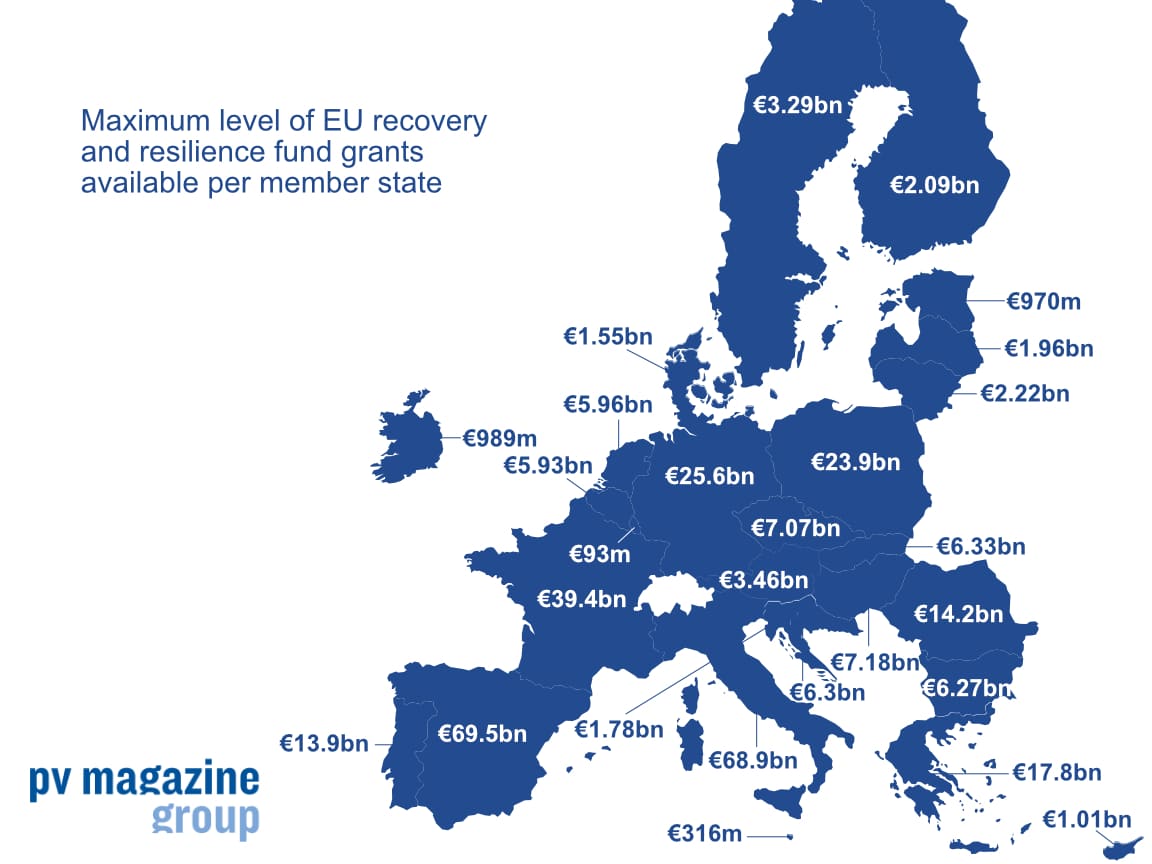EU finance body the European Investment Bank (EIB) has signed an agreement with the Greek finance ministry “to help manage up to €5 billion as part of Greece’s implementation of the national recovery and resilience plan, known as ‘Greece 2.0,’” according to a statement released.
pv magazine has previously reported Greece’s €54.5 billion Covid recovery plan includes at least €10.4 billion for upgrading energy infrastructure, with a green energy transition in mind.
The EIB will help Greece identify high-impact investment plans with an emphasis “to be placed on climate action, energy transition and digital transformation,” according to a press release issued by the lender.
Why it matters
The ‘Greece 2.0' plan will be financed by the bloc's Recovery and Resilience Facility (RRF), which was agreed by EU leaders in July. The European funding pot will offer €673 billion, in loans and grants, to support reforms and investment undertaken by member states aiming to boost economies in the wake of the Covid-19 pandemic.
EIB technical assistance is important as the national recovery plans submitted by EU member states to secure RRF funds will undergo due-diligence vetting to help identify high-impact investments and projects, and to ensure the most effective use of the funding streams.
Popular content
Greek finance minister Christos Staikouras said the agreement signed this week by his ministry and the bloc's lender will ensure “our country will benefit from the EIB’s technical, economic and financial expertise in identifying high-impact projects and effective structures, which will significantly contribute to making the best use of the Recovery and Resilience Facility. Furthermore, the EU bank may offer financing, alongside the Recovery and Resilience Facility resources, for some of the projects that will be examined and appraised by its experts.”
The recovery plan drafted by Athens comprises around €31 billion of RRF funding plus a further €26.5 billion of private-sector cash, with policymakers hoping most of the EU grant and loan money will be match-funded by non-state actors.
EU member states wishing to draw down funds from the RRF pot must submit their national recovery plans to the European Commission this month. At least 37% of the proposed spending must be targeted on climate-related investments and reforms.
This content is protected by copyright and may not be reused. If you want to cooperate with us and would like to reuse some of our content, please contact: editors@pv-magazine.com.


10 comments
By submitting this form you agree to pv magazine using your data for the purposes of publishing your comment.
Your personal data will only be disclosed or otherwise transmitted to third parties for the purposes of spam filtering or if this is necessary for technical maintenance of the website. Any other transfer to third parties will not take place unless this is justified on the basis of applicable data protection regulations or if pv magazine is legally obliged to do so.
You may revoke this consent at any time with effect for the future, in which case your personal data will be deleted immediately. Otherwise, your data will be deleted if pv magazine has processed your request or the purpose of data storage is fulfilled.
Further information on data privacy can be found in our Data Protection Policy.